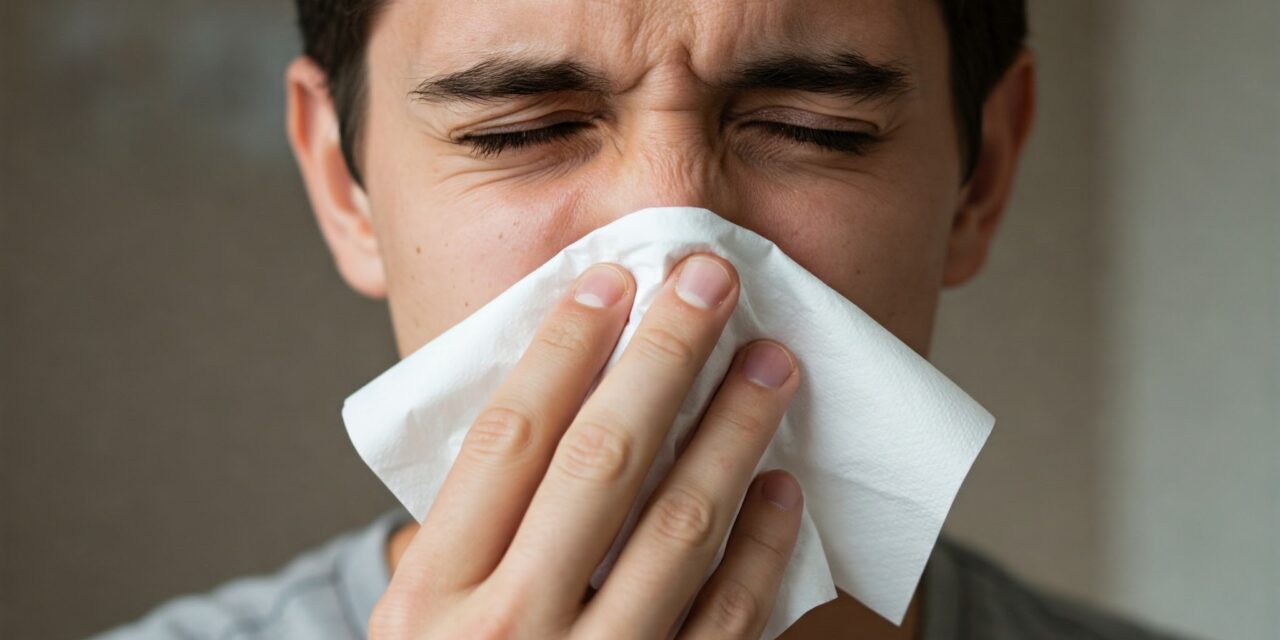I have a real love-hate relationship with this time of year in Portland. I absolutely adore watching the cherry blossoms burst into life—the way those once-bare branches across the city suddenly explode with delicate pink and white petals, and how the fresh, bright green leaves start to carpet the trees. It’s like the whole city wakes up from a long winter’s nap. But after living here long enough, I know that this beautiful show only lasts a couple of weeks before I’m hit with watery eyes, nonstop sneezing, and all the classic hay fever misery. It’s a bittersweet season—stunning to see, but tough to endure.
If you find yourself sneezing, sniffling, and rubbing your itchy eyes every spring in Portland, you’re definitely not alone. Hay fever—also called allergic rhinitis—hits a lot of us hard when the city’s trees and grasses start releasing pollen into the air. But what exactly is hay fever, and which allergens are the biggest troublemakers in Portland during April, May, and June? Let’s break it down.
What is hay fever, anyway?
Hay fever is your body’s way of overreacting to harmless things like pollen, dust, or pet dander. When you breathe in these tiny particles, your immune system goes on the defensive, releasing chemicals (like histamine) that cause all those annoying symptoms—runny nose, sneezing, itchy eyes, and congestion.
Portland’s Top Spring Allergens: Month by Month
Portland’s lush greenery means we get a lot of pollen, especially in the spring. Here’s what you can expect as the seasons change:
April: Tree Pollen
Spring kicks off with tree pollen running the show. If you’re sneezing in April, you can probably blame trees like alder, birch, cedar, oak, and pine. Tree pollen counts are usually at their highest this month.
May: Trees and Grasses
In May, tree pollen is still hanging around, but now the grasses are getting in on the action too. Ryegrass and timothy grass start releasing their pollen, so allergy symptoms can get even worse for some people.
June: Grasses Rule
By June, grass pollen is the main culprit. Ryegrass, timothy grass, bentgrass, and fescue are everywhere, making June one of the toughest months for Portland allergy sufferers.
How to Survive Hay Fever Season in Portland
-
Check the pollen forecast: Local news and weather apps often report daily pollen counts. Try to stay indoors when counts are high, especially in the morning.
-
Keep windows closed: It’s tempting to let in the fresh air, but this also lets in pollen.
-
Change clothes and shower: After being outside, wash off any pollen that might have stuck to your skin or hair.
-
Use an air purifier: A HEPA filter can help keep indoor air cleaner.
-
Start allergy meds early: If you know you get symptoms every year, start taking antihistamines or using nasal sprays before the season gets bad.
Natural & dietary approaches (be consult a physician or naturopath on the following, and do your research – every body is different):
-
Vitamin C-rich foods and juices: Drinking a fresh glass of orange juice or eating other vitamin C-rich foods (like grapefruit, lemons, limes, berries, tomatoes, and peppers) may help reduce hay fever symptoms. Vitamin C is a natural antioxidant and anti-inflammatory that can lower histamine levels in the body, which may lessen the severity of allergic reactions.
-
Other anti-inflammatory foods: Incorporate turmeric and ginger into your meals or juices. Both have anti-inflammatory properties that can help ease allergy symptoms.
-
Bee pollen: Some people use bee pollen as a natural remedy due to its anti-inflammatory and immune-supporting effects, but be cautious if you have severe allergies. This has never worked for me.
-
Nasal saline rinses: Using a saline spray or rinse can help clear pollen from your nasal passages and reduce irritation. I’ve found this can be helpful. I have found this helps me.
-
Quercetin: This natural compound found in apples, onions, and berries may help stabilize cells that release histamine, though more research is needed. This has been helpful for me in the past. Best to consult a naturopath for dosage and ensure it doesn’t interfere with anything you are currently taking.
- Probiotics: There have been an increasing number of studies that show probiotic consumption can help improve hat fever. A controlled clinical study published in 2009 demonstrated that a combination of L. acidophilus NCFM® and B. lactis Bl-04 significantly reduced symptoms in people with birch pollen allergy. Participants who took these probiotics for four months reported a notable decrease in nasal and respiratory symptoms when exposed to pollen under controlled conditions.
- Nettle tea (made from the leaves of the stinging nettle plant, Urtica dioica) is commonly used as a natural remedy for seasonal allergies, particularly hay fever (allergic rhinitis). Nettle contains compounds that may inhibit histamine receptors and reduce the amount of histamine the body produces in response to allergens. It’s advised to drink 1-3 cups per day, but remember Talk to your doctor first if you’re pregnant, breastfeeding, or taking medications (especially blood thinners, blood pressure meds, or diuretics). Also be sure you aren’t allergic to nettle itself.
Medical Options:
-
Antihistamines and nasal sprays: Over-the-counter antihistamines and steroid nasal sprays are effective for many people. Your pharmacist can help you choose the best option for your symptoms.
Highly Rated Allergists in the Portland Area
Based on recent reviews and ratings from multiple sources, here is a list of allergists in the Portland area who have received positive feedback from patients:
-
Portland Allergy & Asthma (SE Portland) 971-358-5600
-
Dr. Michael Osborne (SW Westgate) 503-292-7577
- Mt Hood ENT & Allergy (E Burnside) 503-251-3204
- PDX ENT & Audiology (NW Portland) 503-222-3638
- NW ENT & Allergy (NW Portland) 503-513-8693





